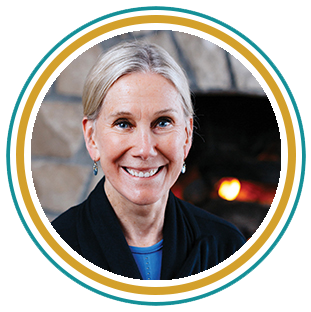Learn more about Mentoring Communities at this webinar, 3 Keys to Transformational Leadership Using Mentoring Communities with MaryKate Morse and Leighton Ford.
Every new leader believes they can make a difference where older leaders have failed. Yet when the reality and struggles of ministry press on developing leaders, their need for companionship is mission critical. In the end, idealism for the ministry cannot sustain the reality of the new leader’s actual experience.
Often, after bursting out of the gate at the beginning of the race, the leader finds herself or himself alone, running around the track with no guidance for the next turn ahead.
As bivocational church planters, my husband and I were feeling the pangs of having very few people in our lives who could identify with our ministry journey and provide the encouragement and support of friendship in shared experience.
Karlene, pastor (Eugene, Oregon)
Transformation for the long, taxing haul of ministry can happen when we are called into relationship with Christ and others in a Mentoring Community. We are no longer isolated and alone. We have others who love us and hold us accountable to the high calling of Christ.
What is a Mentoring Community?
A Mentoring Community is a yearly three-to-five-day-long gathering of a mentor and five to ten participants who leave ministry and daily life together to rest, listen, and pray for each other. Over the years, unique varieties of mentoring communities have emerged in different ministry settings. In France, for a two-year, evangelist-training program, the participants are placed in Mentoring Communities with a mentor. Whenever they come together for training, they spend time with their group. They continue meeting yearly with their group after completing the two-year training.
In Mexico, national mentors are trained to create Mentoring Communities for pastors and other people in ministry. Each group takes a yearly retreat, but they also meet for a day either monthly or bimonthly. In Canada, the Mentoring Communities are an optional opportunity for pastors who are receiving special training from a coach. They come together for a week twice a year and an extra day is attached for a Mentoring Community experience. The plan is for these groups to continue after the training. Internationally and in the United States, most Mentoring Communities meet once a year.

The 3 Keys: Safe Times, Safe Places, Safe People
1. Safe Times
Going Away to Rest for a While (Mark 6:31)
In the sixth chapter of Mark, Jesus sent out his disciples. They were casting out demons, healing the sick, and preaching repentance. When they gathered back to Jesus to report all they had done, Jesus told them, “Come away by yourselves to a secluded place and rest a while” (NASB). This verse is sandwiched between Jesus sending out the twelve and the beheading of Jesus’ beloved cousin, John.
Resting reminds us that God loves us and designed us to need and want time apart with friends, family, and him. Unceasing activity for good is the deception that we can produce apart from God’s design and plan. #LifelongLeadership
Tweet
Ministry for Christ is a combination of wins, great disappointments, and losses. Jesus understood that when things are going well and when they are not, his disciples and he himself needed to go away by themselves. They needed to go to a secluded place where people could not find them and pull them back into work. They needed to rest.
God created us to rest each night and to rest on the seventh day. Resting reminds us that God is sovereign and God will accomplish God’s purposes. The world goes on just as well with or without us. Resting reminds us that God loves us and designed us to need and want time apart with friends, family, and him. Unceasing activity for good is the deception that we can produce apart from God’s design and plan.
2. Safe Places
Place is also important. We are connected to our environments, but we are often disconnected from the physical world. We aren’t outside in nature enough. We are in homes, offices, buildings, and cars. God created a world that was good, diverse, and beautiful. When we are out in it, we experience God’s grace and goodness in unique ways.
Our group rents a large guesthouse on a wooded property outside a small town on the Sunshine Coast of Canada, about two hours north of Vancouver, BC, by ferry and car. We gather from as far away as Thailand and as near as Seattle, but for all of us this destination removes us from our usual contexts and provides a sense of being away. The house overlooks a finger of water off a larger harbor and is surrounded with the beauty of creation. We hear eagles. We see trees and flowers. We smell the heat of the day and feel the coolness of night.
Space4Grace Mentoring Community
There are three basic sabbatical premises for safe times and safe places. The Hebrew word for Sabbath means to cease and rest. The Greek and Latin words for Sabbath come from the Hebrew. Christian ministers and workers especially require and benefit from ceasing from their labors and strivings. They remember God alone is sovereign and God accomplishes his purposes.
3. Safe People
Listening to Each Other and to the Spirit (John 14:16-26)
When Jesus gathered with his beloved disciples before his arrest and crucifixion, he spent time comforting them. He was the one who would be betrayed by one of his own, then tortured and hung to die a suffering death on a cross. Yet he took time to comfort his disciples. He reminded them that they had an eternal place and that he would be with them always.
Jesus promised them the companionship and advocacy of the Holy Spirit. He prayed for them to be one and to love each other as he had loved them. Jesus did not expect his followers—especially those who would be at the front lines of ministry—to be alone and defenseless. Jesus expected us to be safe people who would create spaces for safe conversations together.
As I experienced a safe environment, 50% of my problems evaporated. You see how the Holy Spirit works in the quiet moments.
Bishop John, pastor and leader, Kenya
In a Mentoring Community, both the mentors and the participants commit to being safe people for each other. The character of the mentors and the participants is therefore of utmost importance. Mentoring Communities do not work if the lead mentor or any one of the participants is more interested in building their own empire than in supporting God’s Kingdom work in each other.
Jesus walked with his disciples. He developed them in their faith and service. He was a mentor to them. Mentoring is not counseling. A mentor is not responsible for “fixing” a developing leader’s life by helping them sort out the reasons for their struggles. Mentoring is not just modeling. In other words, it doesn’t mean just following a leader and watching them. A mentor is keenly invested in the mentee and desires to see them mature in Christ and to be of service to Christ.
Mentors are experienced, proven, spiritually mature leaders who are God’s-Kingdom builders, not personal-empire builders. Mentors exhibit HIS character qualities: humility, integrity, and service. They have a desire to lift up and invest in the next generation of leaders.
Mentees are committed to be in Christ and to become more like Christ. They have a desire to grow and have demonstrated capacity as one called into ministry, whether in formal or informal roles. They, too, have demonstrated interest and capacity to build God’s Kingdom, not to create their own empires.
Mentoring Communities are designed to create safe times, safe places, and safe people for today’s leaders.
Tweet
What if there are no mentors? In some cultures and in some environments, mentors are scarce or nowhere to be found. In these case, there is no historical or ecclesial precedent for mentoring, which often means there is no word for mentoring or understanding of how it might work. Sometimes, the closest idea is apprenticeship.
In some cultures, the pathway from childhood to adulthood is marked by ceremonies, learned skills, or successfully completed tests. Usually, an experienced adult helps a child make this journey or helps a young person train for a particular profession. If you find yourself in a culture where there are few or no mentors, then create a peer Mentoring Community. Many groups have started in this way.
Michael Ramsden, director of Ravi Zacharias International Ministries, was prompted to start a peer Spiritual Mentoring group ten years ago. “I don’t want to grow old without friends around me, “ he said. “Too many evangelists finish their life alone.” He wanted a group of friends who could grow old together.
We were like-minded leaders, isolated from Spiritual Mentoring in our European countries. We shared the same heart and passion to see our continent reached for Christ. Andy from Spain, Christian from Austria, Kosta from Macedonia, Amy from the UK, Vlad from Romania, me from France. When we first met, we clicked. We shared our dreams, our disappointments, our frustrations, and our hopes. We could clearly see the benefit of journeying together for the long haul.
Raphaël Anzenberger, evangelist, France
Mentoring Communities are not:
- social clubs or elite spiritual clubs;
- vacation times;
- training events;
- Christian conferences; or
- counseling sessions.
Mentoring Communities are designed to create safe times, safe places, and safe people for today’s leaders.
God’s mission is big. The work is too difficult to go it alone. These communities are all about walking with Christ. They are not just for fellowship and encouragement. They are not learning groups for developing theological insights or improving your skills as an evangelist or leader. They are not weekly small groups for studying and developing in faith. The focus is a lifelong HIS walk with Christ for the mission of Christ.
If they are from God, Mentoring Communities:
- steadily increase members’ love of God, self, and others;
- steadily increase members’ effectiveness as leaders; and
- become a yearly pilgrimage with friends and the Trinity in an “away” place where Christ is met in worship, play, and prayer.
My Mentoring Community has encouraged me through difficult situations, life transitions, and general attentiveness in everyday living. It has helped to prevent burnout in life and ministry and has given me greater joy and a more thankful heart in my relationship with the Lord. It has also helped me encourage others in missions and ministry to consider long-term fruitfulness, spiritual formation, and care for the long run. I often think of Leighton Ford’s life example and words of wisdom regarding a life of ministry: “It’s not just how you start the race, but how you finish it that matters.” Life is a marathon, not a sprint, and I want to run the race to the finish line, to one day hear those precious words, “Well done, my good and faithful servant!”[i] Spiritual mentorship is a gift to help us finish well with joy and the fullness of Christ along the way!
Wendy, missionary (Mexico)
Sources:
[i] Matthew 25:21.




Is there any such group in Kenya and how can I find and join them
Hi Connie! Thank you so much for expressing interest. MaryKate unpacks these groups further in Lifelong Leadership (here is a link to the book product page where you can read more about it and download a free excerpt https://bit.ly/2xjdem8). We’re also hosting a free webinar with MaryKate next week where we’ll be sharing links to Lausanne and LFM, both of which help connect people to mentors and mentoring communities. You can find a link to that webinar earlier in this post and/or on the resources page of The DiscipleMaker.